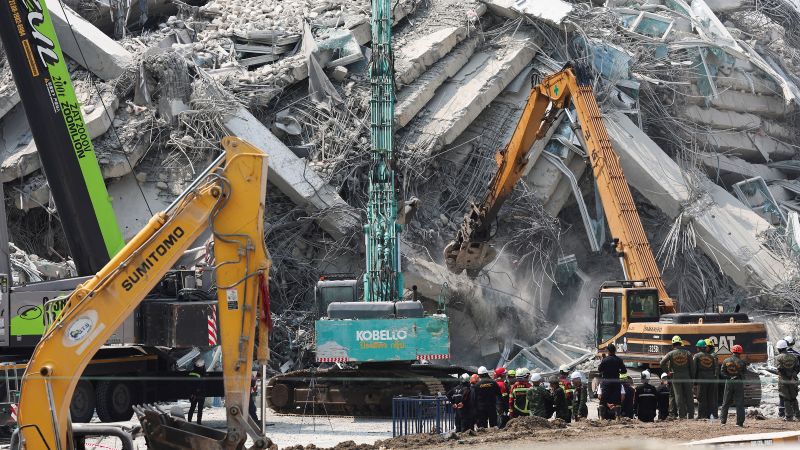Construction Magnate and 16 Others Face Charges Over Deadly Bangkok High-Rise Collapse
Premchai Karnasuta and 16 accomplices surrendered to police on negligence charges linked to the collapse of a Bangkok skyscraper during a March earthquake.
Subscribe to unlock this story
We really don't like cutting you off, but you've reached your monthly limit. At just $5/month, subscriptions are how we keep this project going. Start your free 7-day trial today!
Get StartedHave an account? Sign in
Overview
Premchai Karnasuta, president of Italian-Thai Development Co, along with 16 others, surrendered to police on negligence charges after a Bangkok building collapsed in a March earthquake, killing 92 people. Investigators claim the building did not meet safety standards, with substandard construction materials cited. The search for victims has been halted, but DNA efforts to identify the deceased continue. Previous reports highlighted irregular documentation by the involved companies, including a Chinese firm, raising questions about accountability. This incident follows a previous conviction against Karnasuta for wildlife poaching, marking a significant moment in Thailand's construction accountability narrative.
Report issue

Read both sides in 5 minutes each day
Analysis
- Seventeen individuals, including construction executives and engineers, face criminal negligence charges for their role in the deadly collapse of a Bangkok high-rise after a seismic event in March, resulting in over 90 confirmed fatalities.
- Evidence collected suggests that the building did not comply with safety codes, revealing structural flaws and substandard materials used during construction, which have been under scrutiny since the disaster.
- The case involves scrutiny of both local and foreign companies, highlighting potential irregularities related to documentation and oversight in the construction process.
Articles (4)
Center (3)
FAQ
The collapse was caused by structural failure due to the earthquake originating from Myanmar, with investigations suggesting substandard construction materials and safety standards not being met.
Premchai Karnasuta, president of Italian-Thai Development Co, and 16 others are facing negligence charges.
DNA efforts are ongoing to identify the deceased.
Premchai Karnasuta has a previous conviction for wildlife poaching.
History
- This story does not have any previous versions.


